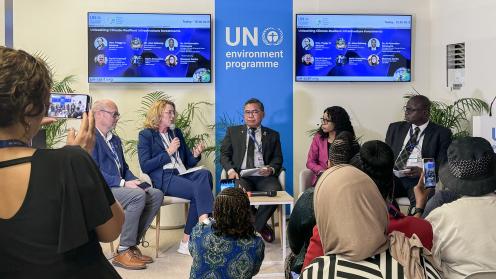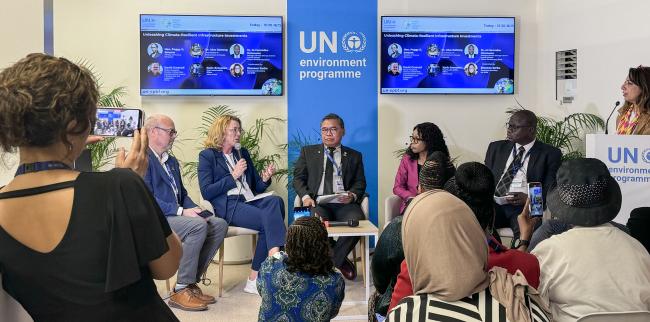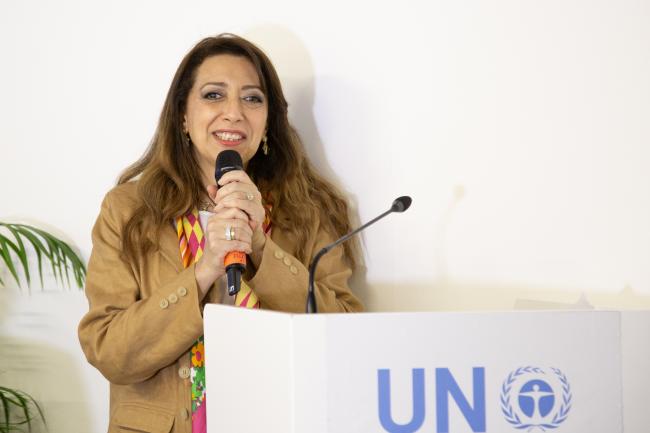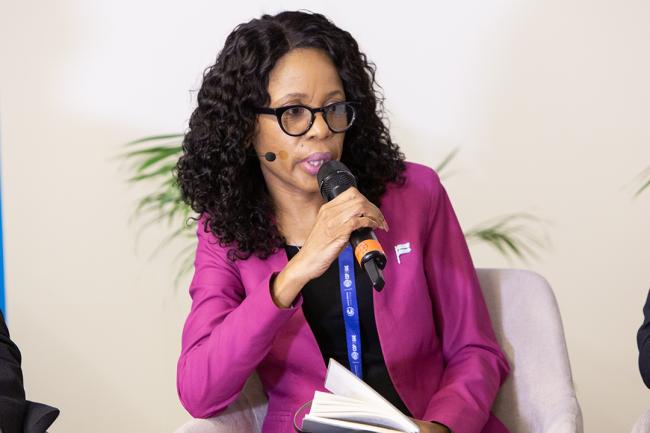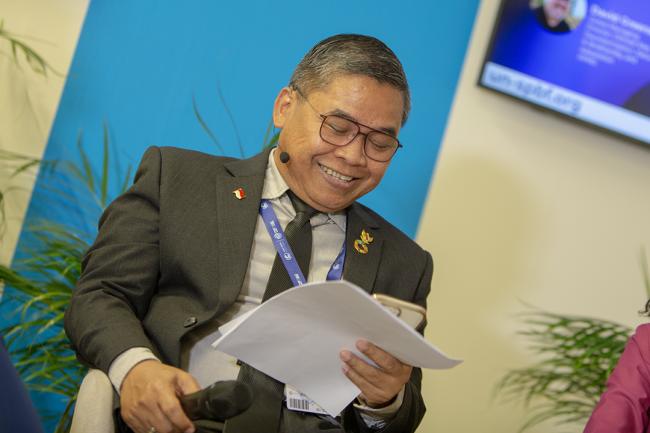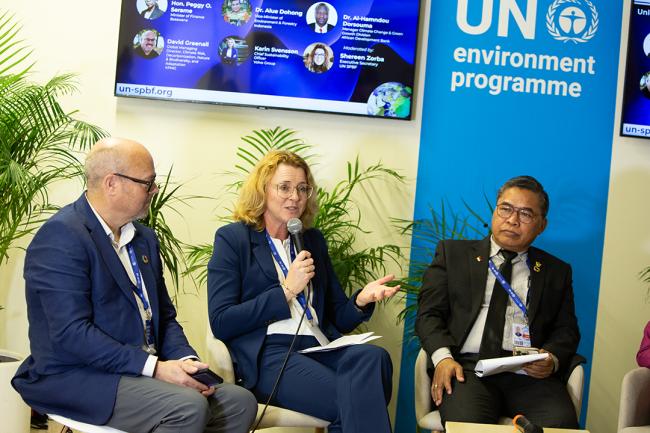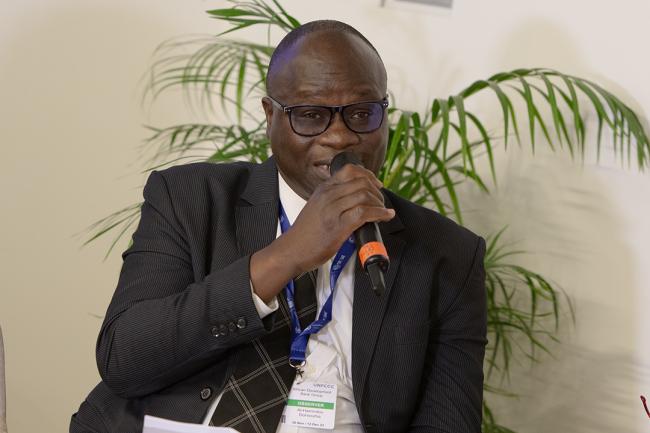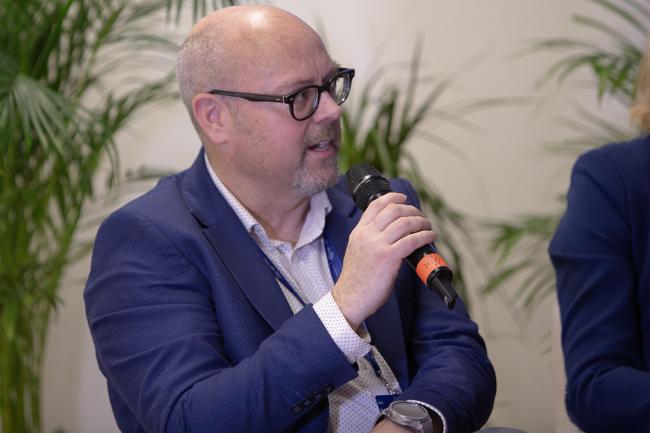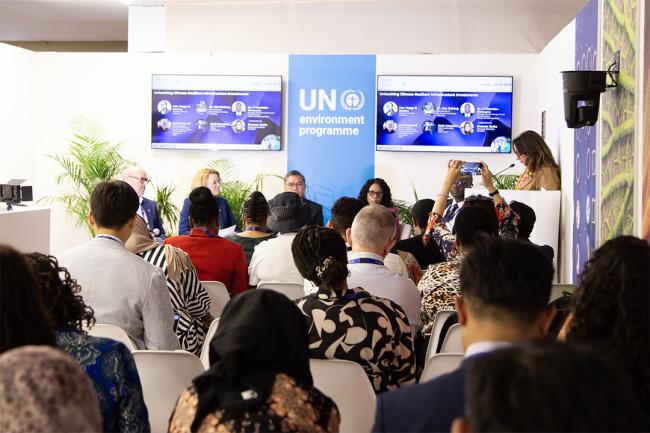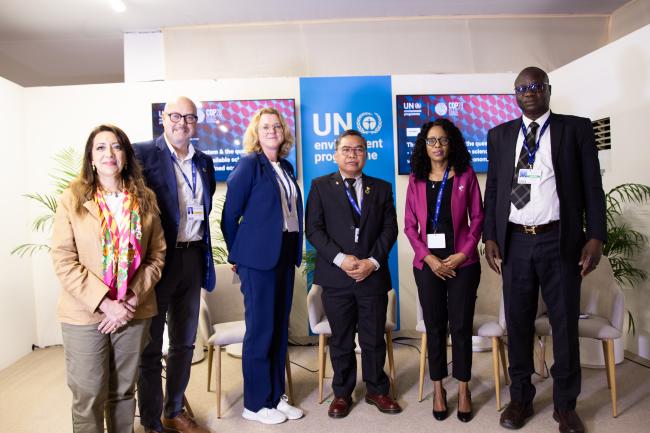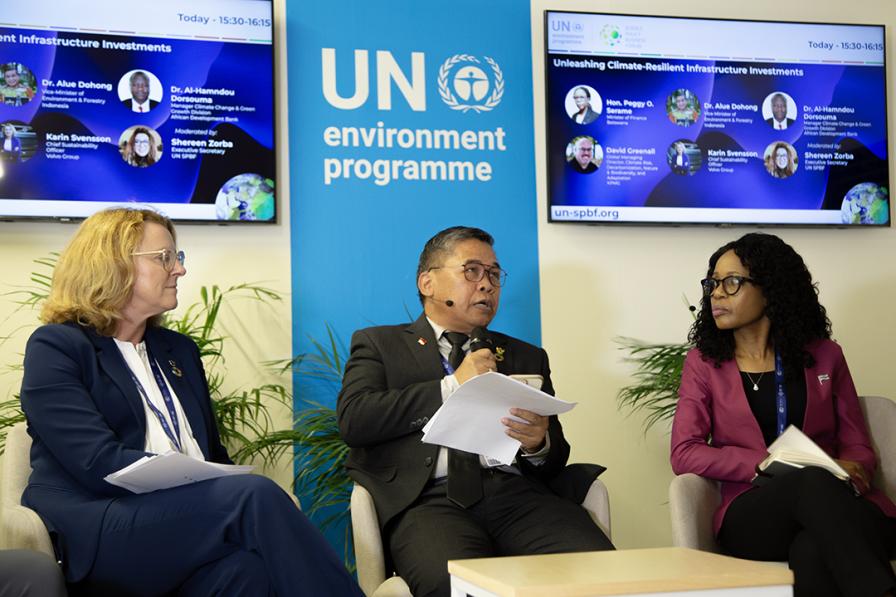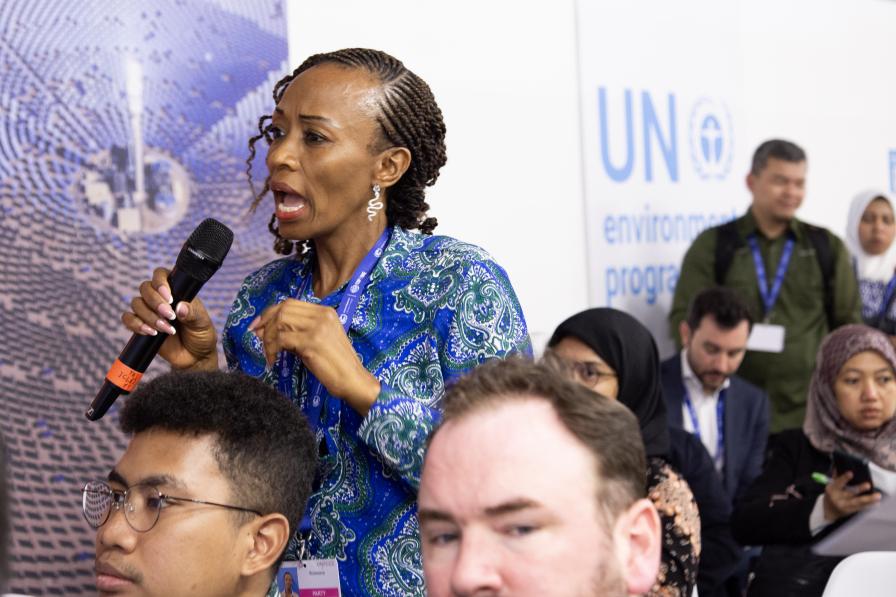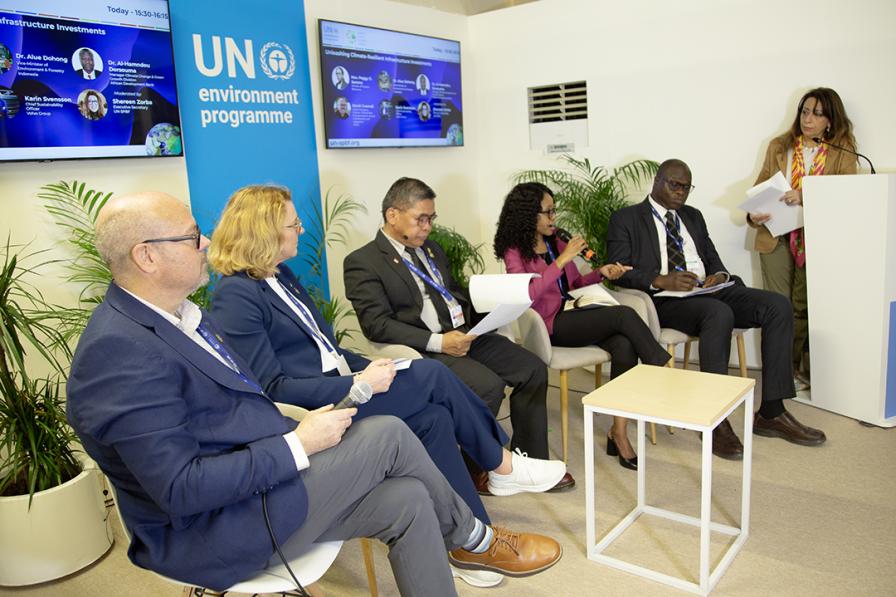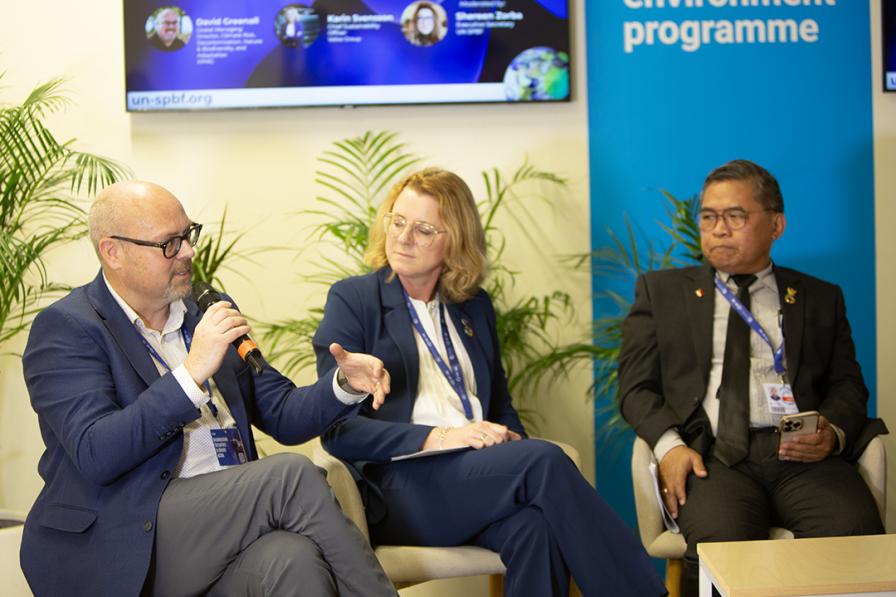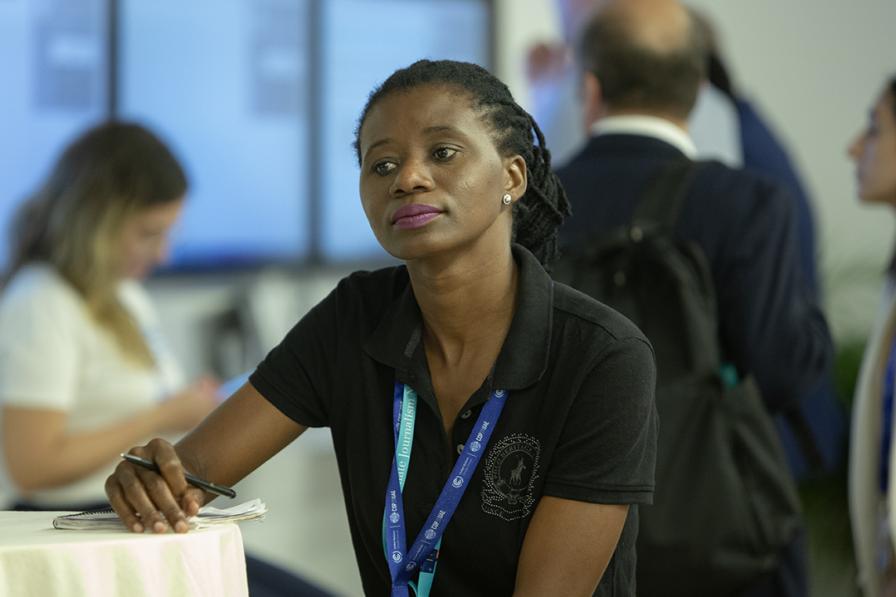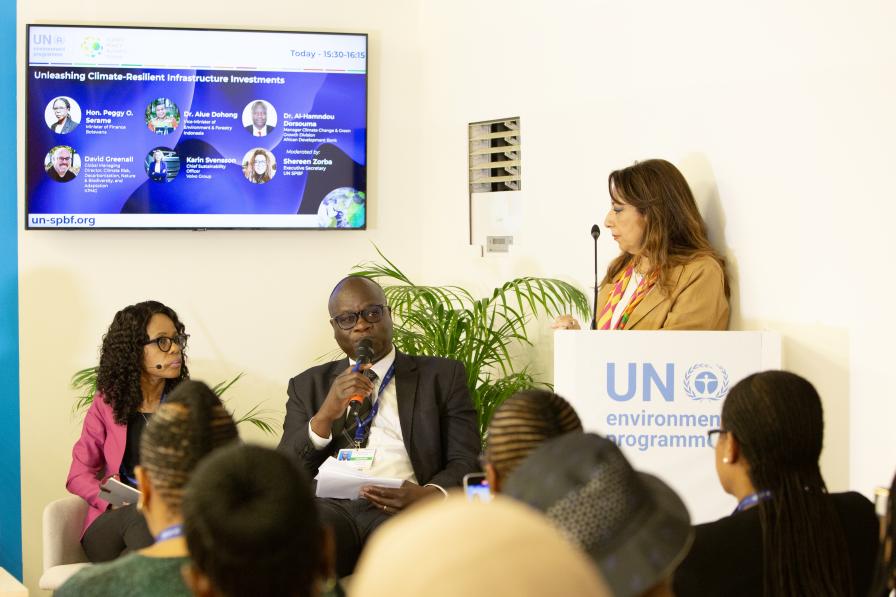Summary
This high-level panel addressed the escalating challenges and opportunities in climate-resilient infrastructure investments for developing countries. Panelists explored strategies for bridging the substantial investment gaps in sustainable infrastructure.
Unleashing Climate-Resilient Infrastructure Investments
Climate-resilient infrastructure is essential in mitigating the adverse impacts of climate-related disasters, and the demand for such infrastructure is escalating rapidly in the face of intensifying climate-related challenges. However, financial resources available to the most vulnerable countries fall short of meeting their growing needs, leaving a critical gap that jeopardizes climate adaptation. Held on Finance Day at COP 28, this high-level panel addressed the escalating challenges and opportunities in climate-resilient infrastructure investments for developing countries. Panelists explored strategies for bridging the substantial investment gaps in sustainable infrastructure.
Shereen Zorba, Head, UN-Science-Policy-Business Forum (UN-SPBF), moderated the event, noting the need to examine pathways for developing countries to overcome challenges in acquiring financing for climate-resilient infrastructure. She referred to the UNEP Adaptation Gap Report 2023, which reveals that the current cost of adaptation for developing countries this decade is between USD 215 billion and 387 billion per year. The report also estimates international public adaptation finance flows to developing countries at USD 21 billion in 2021, representing a 15% decrease compared to 2020. Zorba highlighted the resulting adaptation finance gap and disparity between the financial resources needed and those that are currently available.
Peggy Onkutlwile Serame, Minister of Finance, Botswana, discussed key strategies deployed by her government to ensure adequate financing towards climate resilience in national infrastructure projects. She reported that 60% of the national budget goes to infrastructure development, with 7% of these funds dedicated to transition infrastructure for climate resilience. She presented national plans to increase climate research and innovation financing, and explained that her country is diversifying revenue sources away from the current reliance on mining, which bears more risks in terms of climate resilience. She lauded the financial pledges made to developing countries at COP 28, underscoring the need for following through in meeting the pledges made while also ensuring accessibility to developing countries. She stressed the need to consider each country’s specific risks during financing, highlighting that her country’s classification as high middle income is a disadvantage.
Alue Dohong, Ministry of Environment and Forestry, Indonesia, discussed lessons learned in his country's endeavor to restore two million hectares of degraded peatlands in his country. The focus, he explained, has been on restoration of ecosystem services offered by the peatlands, on the promotion of biodiversity conservation, and on increasing carbon sequestration. He stressed the importance of rural planning and increasing community resilience, sharing his country’s experience with involving local communities and their knowledge and wisdom in peatland restoration at all stages, from project planning and implementation to monitoring and evaluation. He mentioned the challenges of adequate financing, noting the need for low-cost technologies.
Karin Svensson, Chief Sustainability Officer, Volvo Group, said her company has aligned with sustainability goals by decarbonizing its business operations towards net-zero carbon emissions. She also reported that its carbon emissions reduction strategy is global since Volvo Group is present in 190 countries, noting that, by 2030, 35% of its products will be electric. Svensson described collaboration with other vehicle manufacturers to support charging accessories and infrastructure and said her company is positioning itself to respond to ongoing demand for sustainable public transport, noting the need for a “common dialogue” on ensuring technological advances to achieve this.
Al-Hamndou Dorsouma, African Development Bank (AfDB), discussed challenges in aligning infrastructure investments with the climate goals of African nations. He stressed that, contrary to common perceptions, studies have shown that investment risk in Africa is relatively low. In spite of this, he continued, the cost of borrowing is high for Africa, while at the same time, accessibility to climate financing is low. Dorsouma further explained that, to bridge the financing gap, the continent launched the world’s largest adaptation program in 2021, the USD 25 billion Africa Adaptation Acceleration Program. He also pointed to the Alliance for Green Infrastructure in Africa, a partnership of the AfDB with the African Union Commission, Africa50, and other partners, to unlock up to USD 10 billion for green infrastructure projects, noting pledges received at COP 28 of USD 175 million towards its work. He emphasized the need for government policies that ensure a conducive environment for investment.
David Greenall, KPMG, said the key risks associated with climate resilience can be managed through private-public partnerships. He noted the need to understand ways of “de-risking” investments and applying a systematic, stepwise approach to integrating adaptation into decision-making. He noted the need also to better align private and public investments with national climate resilience strategies and for the public sector to create a safe environment for private investment.
Organizer: UN SPBF
Contact: Shereen Zorba | shereen.zorba@un.org
For more information: un-spbf.org/
To receive free coverage of global environmental events delivered to your inbox, subscribe to the ENB Update newsletter.
All ENB photos are free to use with attribution. For this COP 28 side event, please use: Photo by IISD/ENB | Angeles Estrada
